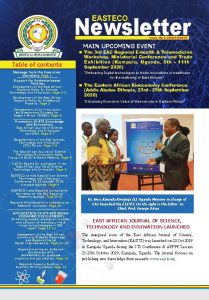
Bioeconomy Strategy for Eastern Africa
The main objective of BiSEA is to develop a regional innovation driven bioeconomy strategy shared by the countries in the Eastern Africa region. This will be done in close consultation with Science and Technology Councils/Commissions and relevant ministries and stakeholders in all six BioInnovate countries (Ethiopia, Burundi, Kenya, Rwanda, Tanzania and Uganda) and South Sudan.
The BiSEA project partners are;
- East African Science and Technology Commission (EASTECO) – Rwanda.
- African Technology Policy Studies Network (ATPS), Kenya
- Scinnovent Center,
- Bio-Innovations (U) Ltd, Uganda
- Stockholm Environment Institute (SEI) – Africa Center, Kenya
Why BiSEA? – Building Bioeconomies in Eastern Africa
The Bioeconomy, can be defined in many ways, and in the recent communique from the Global Bioeconomy Summit, Berlin 2018, the bioeconomy is defined as “the production, utilization and conservation of biological resources, including related knowledge, science, technology and innovation to provide information, products, processes and services in all economic sectors aiming towards a sustainable economy”
A key feature of the bioeconomy is extending biomass production and processing beyond food, feed and fibre to include a range of value-added products with potential applications in many sectors, such as the food, health, energy sectors. Bioeconomy driven innovation, not least the use of modern biosciences, could be an important driver for a future green and circular economic growth in the region, and can for instance be used to:
- Create new jobs and livelihood opportunities and enhance public health and food security.
- Produce crops tolerant to drought, pests or poor soils, or that have specific characteristics such as improved nutritional value or desirable qualities for specific industrial uses
- Produce green chemicals and new biobased materials for industrial use and local bio refineries including different forms of bioenergy through various biomass productions systems (crops, aquaculture , forests, microbial fermentations)
- Improve value addition using modern agro-processing systems in for high-quality food, feed and agro-industrial
- Convert bio-waste to useful products, making more efficient use of resources and increasing value addition at agro-processing plants, bio-refineries
- Make countries in eastern Africa more competitive internationally, not least in the industrial and agricultural sector, and more successful in integratting in the global economy.
- Create a greener economy as countries in the region shift towards a low-carbon future







13 Comments "Bioeconomy Strategy for Eastern Africa"